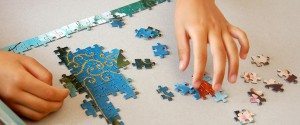Breakthrough Study Reveals Biological Basis for Sensory Processing Disorders in Kids
Sensory Processing Disorder (SPD) is prevalent in those with an autism diagnosis; however, it’s never been recognized as a distinct disease. In a new study from UC San Francisco, researchers have found that children affected with SPD have quantifiable differences in brain structure, for the first time showing a biological basis for the disease that sets it apart from other…


